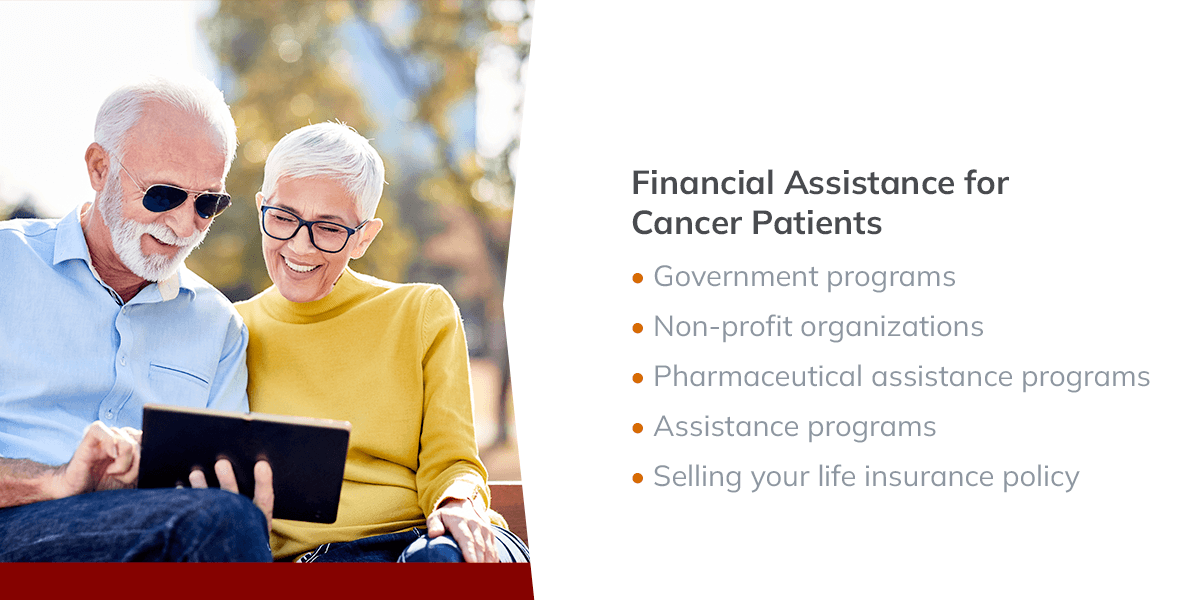
Navigating a cancer diagnosis involves emotional, physical, and significant financial components. It can be even more complex if you are older and no longer in the workforce. Take control of your finances from the start to help avoid putting financial strain on yourself or your loved ones.
It is a lot to take in, from understanding your insurance coverage to addressing your medical expenses, considering assistance programs, and finding ways to finance treatment yourself. Take the time to understand what resources are available to you. It will empower you, helping you maintain your quality of life while focusing on your health and well-being during this challenging time.
Understanding Cancer and Its Challenges
Understanding cancer and the challenges older patients face lies in the intersection of financial and health concerns. By 2030, an estimated 70% of cancer patients in the United States will be over 65. Treatment may be more complex in older adults as they are more likely to have other chronic conditions that can lead to serious side effects from chemotherapy. Aside from health effects, cancer poses a challenge to patients’ emotional and mental state, making it imperative to find supportive resources.
Cancer impacts your life in various ways when you are older:
- Health challenges: Your physical health may decline more quickly, affecting your quality of life. For this reason, ensuring your finances are in order and can cover your needs is crucial.
- Lifestyle changes: Treatments for your cancer diagnosis often necessitate lifestyle adjustments. These can affect your daily routine and social activities.
- Emotional and mental well-being: A cancer diagnosis often leads to anxiety and emotional distress, which affects your mental well-being. This change makes supportive resources essential as you navigate your diagnosis and treatment.
- Impact on caregivers: Your caregivers, like friends or family, will also experience some emotional strain, which impacts your support system.
- End-of-life planning: You may want to set your end-of-life plans in place. It is a difficult task that can impact your emotional and psychological well-being.
- Quality of life: Without contingency planning, your quality of life may diminish due to the emotional, financial, and physical challenges that come with cancer.
Financial Resources for Cancer Patients
When you deal with cancer in later life, you have financial challenges. With a reduction in income sources, filling the gaps in daily expenses puts pressure on you. The result is financial toxicity — the challenges patients face in medical care affordability. Some of the various costs cancer patients have to cover include:
- Direct medical costs: You will have medication costs, doctors’ fees, and hospital charges, which often only get partial coverage by health insurance.
- Daily living expenses: Daily expenses include the utilities, housing, food, and transportation that patients need. These expenses can be especially burdensome when you are no longer working.
- Non-medical or indirect medical costs: These include over-the-counter medication, medical devices, home care, and supplies that you pay for out of pocket.
Contact your creditors to negotiate payment options instead of letting the bills pile up. These can include payment plans or lower rates. If you need help at home while you are recovering, you have legal rights that offer options for your long-term care throughout this treatment process. If you need care at home, the Family and Medical Leave Act (FMLA) may allow one of your loved ones to take up to 12 weeks unpaid leave without risking their employment status.
Financial Assistance for Cancer Patients

If you need help paying your medical bills, you have various options to consider. Speak to your health care providers, financial counselors, or social workers about your financial circumstances. They will likely help you find a way to finance your treatment or set up a payment plan. Exploring your financial resources and seeing how you can combine them for more comprehensive financial support is essential. Outside of health insurance, you can explore these options to help fund your cancer treatment:
- Government programs: Programs like Medicare and Medicaid provide health coverage, while Supplemental Security Income (SSI) offers financial aid to anyone with low income.
- Non-profit organizations: Non-profit organizations like the American Cancer Society, the Patient Advocate Foundation and CancerCare have financial assistance programs for older patients. These can include help with your transportation and medical bills.
- Pharmaceutical assistance programs: Various private and public assistance programs allow you to buy medication at a discounted price or cover the entire cost. Ask your medical care team about these programs, as they require information from your providers.
- Assistance programs: Programs like the Supplemental Nutrition Assistance Program (SNAP) and the Low-Income Home Energy Assistance Program (LIHEAP) offer financial relief to cancer patients in low-income households.
- Selling your life insurance policy: If you have a terminal illness, you can opt for a Viatical Settlement to sell your policy to a third-party buyer. Your life insurance policy must be older than two years and have a death benefit over $100,000.
Supportive Resources for Older Cancer Patients
Engage with supportive resources to boost your overall well-being. They offer insight into the practical aspects of your diagnosis with emotional support. You can find official and local supportive resources for the following aspects of your diagnosis:
- Local support groups: Connect with others facing similar health challenges by finding local cancer support groups that foster a sense of community and understanding.
- Counseling services: You can find professional counseling services that help you navigate your diagnosis and treatment. These include physiotherapy, financial counseling and emotional support.
- Senior centers: Senior centers often have support services alongside their social activities. Look for a supportive environment that caters to older adults’ needs.
- Palliative and hospice care: Hospice care supports you through the end-of-life stage. They offer care and comfort, while palliative care helps you improve your quality of life.
Explore Your Options With Stop Financial Toxicity
The financial implications of battling cancer can cause a significant amount of stress for patients. Knowing what resources are available to you can help to take the strain off, whether you are a patient looking for funding solutions or a loved one helping to navigate these complexities. Selling your life insurance policy is a practical option for medical treatment and long-term care without the burden of additional debt. At the same time, you can also look for additional funding if you have no qualifying policy.
Are you looking to fund your treatment or quality of life by selling your life insurance policy through a Viatical Settlement? Let us match you with a knowledgeable professional who will analyze your options. To get the help you need, contact Stop Financial Toxicity today or call us at 321-353-8618.

